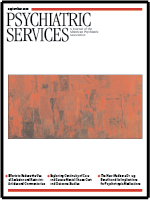Biting the Hand That Starves You: Inspiring Resistance to Anorexia/Bulimia
Anorexia nervosa is a pervasive mental health challenge that affects our brightest young women. Despite our best therapeutic efforts, anorexia still causes years of debility and, in 10 percent of cases, death. With unfailing respect for those suffering from anorexia, Maisel, Epston, and Borden offer a fresh analysis of the etiology of anorexia and bulimia and give us effective new therapeutic tools. Readable and full of first-person accounts by girls and women dealing with anorexia, Biting the Hand that Starves You: Inspiring Resistance to Anorexia/Bulimia gives psychiatrists and clinicians in every therapeutic setting the theoretical framework and practice options needed to treat anorexia and bulimia. This is the book we have been waiting for.
Richard Maisel, David Epston, and Ali Borden demonstrate the ways in which anorexia and bulimia (which they consider two halves of the same coin, hence their preferred term "anorexia/bulimia," or "a/b") is caused and maintained by powerful but hidden pro-anorexia rhetoric. By carefully listening to hundreds of patients, the authors discovered that after insinuating itself into people's lives through the weight-obsessed lingo of the media, anorexia goes on to generate an endless supply of pro-anorexia rhetoric that mutates into sophisticated new forms whenever it confronts anti-anorexia resistance. For example, this rhetoric instantly offers myriad convincing reasons why the doctor pointing out the harmfulness of self-starvation is not to be trusted. The sufferer experiences toxic pro-anorexia thoughts not as alien or unwanted but as reality. Anorexic thoughts proliferate and come to dominate a person's thinking and actions, leading her to lose touch with her own values, her identity, and her relationships.
Understanding the sources of anorexia's tenacity guided the authors in developing compassionate therapeutic practices against it, which they present with clarity and illustrate with therapy transcripts. The narrative therapy informing their approach was originated by Epston and White in the 1980s and has since gained a wide following. Based on how we experience our lives through stories, narrative therapy is uniquely suited to address a problem whose deadliness stems from persuasive rhetoric.
The first priority of treatment is to distinguish the rhetoric of anorexia and bulimia from the person's own values, hopes, and dreams. Externalizing anorexia in this way allows clinicians and family members to ally with the person against the anorexia. Once anorexia is seen as separate from the person, therapy can help the person see its true effects and to turn against it.
The authors demonstrate how anorexia and bulimia are vulnerable despite their metastasizing linguistic strategies. Anorexia needs isolation to brainwash its victims; the authors reconnect the victims with family and friends and link them via anti-anorexia archives with survivors worldwide. Anorexia thrives on secrecy; unmasking it and exposing its strategies weakens it. Revealing its lies and its role in starving and killing women guts its claim of moral authority. More fully articulating the person's, as opposed to anorexia's, hopes and dreams feeds the spirit and strengthens anti-anorexia efforts. Creativity is needed, for anorexia is unprecedented in its ability to induce persuasive thoughts that support anorexic ends.
Biting the Hand that Starves You is a welcome paradigm shift in the treatment of anorexia and bulimia. In my work with dozens of women dealing with anorexia and bulimia, I have found the narrative therapy approach of Maisel, Epston, and Borden to be dramatically more effective than any other kind of treatment. Furthermore, these authors' acknowledgement of anorexia as the confusing horror it is without blaming victims or parents is healing and refreshing. Patients and their families will find this book invaluable; the last section is specifically addressed to parents. If you are interested in compassionate, respectful, and effective treatment of anorexia and bulimia, get this landmark book.
Dr. Hamkins is a psychiatrist at the Carson Center in Westfield, Massachusetts.



